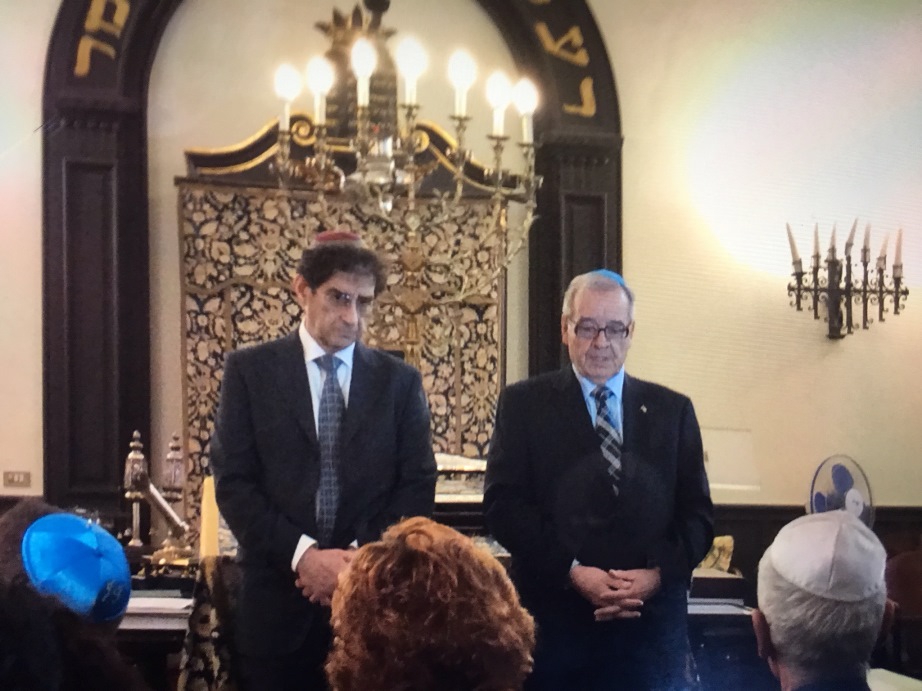On Holocaust Remembrance Day, when most people across the globe were feeling solemn, state Assemblyman Anthony D’Urso said he was feeling blessed.
After years of facing people who did not believe him when he told the story of how he and his family protected a Jewish family from the Nazis in Italy in 1944, D’Urso, with the help of Michael Weinstock, an attorney from Great Neck, found the proof he needed – a diary located in the National Archives of Italy.
“Who in the world would believe that a farmer and his wife would risk their lives – and the lives of their children – and live in the woods for nine months while hiding a large Jewish family?” D’Urso said to a crowd of 500 people in Naples, Italy, on Friday. “It’s a crazy story. But, of course, the Holocaust is filled with crazy stories.”
Since 1988 D’Urso has been trying to locate the family, hoping that his parents would be recognized as “Righteous Among the Nations” by the State of Israel and Yad Vashem, Israel’s Holocaust memorial. The application failed to gain traction because D’Urso lost touch with the family members in the 1960s and was told they had died.
Nearly 30 years later, D’Urso, with Weinstock’s help, found a diary that describes the risks the D’Urso family took to save the Ascarelli family.
D’Urso was reunited with the descendants of the family he helped protect as a boy at a synagogue in Naples.
Ester Sinigallia, a daughter of the family, told D’Urso “I came here to thank you.”
D’Urso, wiping away tears, said, “You don’t need to thank me … I came for the hugs, not a thank you.”
During his speech, D’Urso described how when he was 5 years old he barely saw his father for almost a year.
“He wasn’t gone because he was fighting in the war,” D’Urso said. “He was gone because he was hiding his Jewish friends in the woods.”
Though he was young at the time, D’Urso said he’ll always remember acting as a lookout – calling out to his mother in Italian when he saw German soldiers approaching.
D’Urso said he recalls that despite his efforts, the Germans entered the stone hut he and his family had built for shelter.
They did not find any Jews, he said, but they did destroy the place with their bayonets and kill the small chicken his family had hidden.
“They didn’t just take the chicken,” he said. “They fired their rifles in the air and demanded that my mother cook it for them and serve it to them.”
D’Urso said he will always remember that day, not because of his fear – but because “it didn’t break [his] parents.”
“They knew what they were doing was right – even if nobody else was doing it,” D’Urso said.
Which, he said, is the biggest lesson of the Holocaust
“Right is right – even if nobody is doing it,” D’Urso said. “And wrong is wrong – even if everybody is doing it.”
A copy of the diary has been submitted to Yad Vashem for authentication.
If Yad Vashem approves his status, D’Urso will be the first elected official in the country to be recognized as “Righteous Among the Nations,” and receive the honorary Israeli citizenship that comes with it, his office said.
“I’m blessed because the diary that’s been found allows me to finally spread the word about my father’s heroism,” D’Urso said. “And I’m doubly blessed to spend time with so many people who are alive today, in part, because a farmer who couldn’t read or write knew what was right and what was wrong.”



